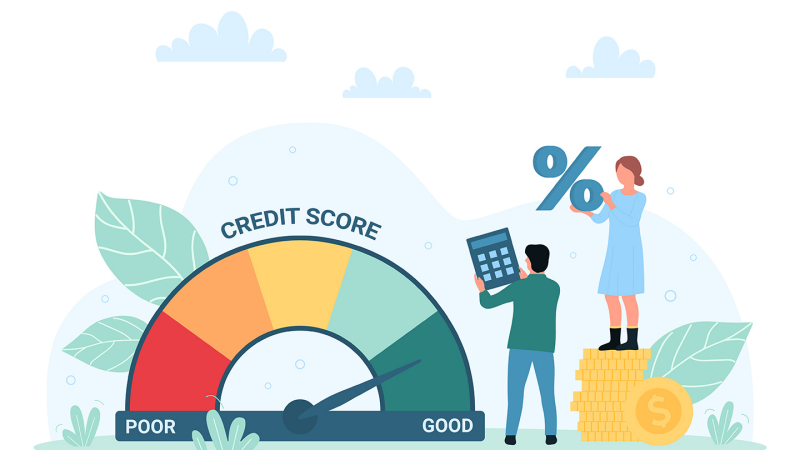Debunking Common Myths About Credit Score Increase Tricks
When it comes to improving your credit score, there’s no shortage of advice out there—some helpful, some misleading. With so many myths floating around, it’s essential to separate fact from fiction so that you can make informed decisions about your credit journey. In this post, we’ll debunk some of the most common credit score increase tricks myths, helping you navigate the world of credit repair with confidence.
The Truth Behind Credit Score Increase Tricks: Myths vs. Facts
It’s easy to get caught up in the hustle of boosting your credit score quickly. However, many myths can steer you in the wrong direction, costing you time, effort, and potentially money. Let’s break down some of the most popular credit score increase tricks myths and get to the truth.
Myth 1: Closing Old Accounts Will Improve Your Credit Score
One of the most persistent myths is that closing old accounts will help your credit score. In fact, closing old accounts can harm your credit, especially if the account has a long and positive credit history. The length of credit history is an important factor in calculating your credit score. The longer your accounts are open and in good standing, the more they contribute to a higher score.
💡 Fact: Keep your old accounts open, even if you’re not using them. This helps lengthen your credit history and can actually improve your score.
Myth 2: Checking Your Own Credit Report Hurts Your Score
Another widespread myth is that checking your own credit report can lower your credit score. This is false. When you check your own credit, it’s called a “soft inquiry,” which does not affect your score. On the other hand, when a lender or financial institution checks your credit as part of a loan application, it’s called a “hard inquiry,” which can have a minor temporary effect on your score.
💡 Fact: Checking your own credit report is a great way to stay informed about your financial standing and to identify potential issues, all without harming your score.
Myth 3: Paying Off Old Debt Will Immediately Boost Your Credit Score
Many people believe that paying off old debts will immediately raise their credit score. While paying off debt is an important step toward improving your credit, the effects won’t be instant. Depending on the type of debt, it could take time for the credit bureaus to update your records. Additionally, the length of credit history can still impact your score even after paying off old debts.
💡 Fact: While paying off old debts is beneficial; it may take some time for the positive impact to show on your credit report.
Exposing the Lies: What You Need to Know About Credit Score Increase Tricks
Misleading information about credit scores can cause people to make poor decisions. Let’s expose more of the credit score increase tricks lies and arm you with the facts you need to successfully improve your score.
Myth 4: Paying Off Collections Immediately Erases Them from Your Credit Report
If you have accounts in collections, you might believe that paying them off will instantly remove them from your credit report. While paying off collections can improve your credit score, it doesn’t automatically erase the record of the collection. In fact, the account may still appear on your credit report for up to seven years.
💡 Fact: Paying off collections can help your credit, but it won’t remove the collection from your report. It’s still a good idea to pay them off, as it shows you’ve addressed the issue.
Myth 5: You Need to Have a Lot of Credit Cards to Build a Good Score
Some people think that opening multiple credit cards is the key to building a good credit score. However, this isn’t necessarily the case. In fact, having too many open accounts can harm your credit score, especially if you have trouble managing them. The length of credit history and how well you manage your existing accounts matter more than the number of cards you have.
💡 Fact: It’s more important to focus on responsible management of the credit accounts you already have than to open numerous new cards.
Don’t Fall for These Myths About Credit Score Increase Tricks
To truly improve your credit score, it’s important to avoid falling for these common myths. Here are some additional tips to help you stay on track:
- Be mindful of credit inquiries: Too many hard inquiries in a short period can damage your score.
- Don’t fall for “quick fixes”: There’s no magic formula for a high score. Building good credit takes time and responsible financial habits.
- Monitor your credit regularly: Regularly checking your credit report ensures you’re aware of any errors or fraudulent activity.
Breaking Down the Top Myths About Credit Score Increase Tricks You’ve Heard
When it comes to improving your credit score, understanding the truth is crucial. The myths surrounding credit score increase tricks can easily derail your efforts, but with the facts on your side, you can take actionable steps toward a better financial future.
Key Takeaways:
1. Don’t close old accounts: Keep them open to lengthen your credit history.
2. Check your credit report: It won’t hurt your score and helps you stay informed.
3. Pay off debt strategically: It takes time for the effects to show.
4. Be patient with collections: Paying them off helps, but they won’t disappear overnight.
5. Focus on quality over quantity: Managing fewer credit cards well is better than having too many.
Take Action Today: Improve Your Credit Score with Cent Savvy
Are you ready to take control of your credit? Don’t let myths hold you back from improving your credit score. Cent Savvy offers expert credit repair services to help you navigate the credit landscape, remove errors, and boost your score. Contact us today to get started and begin your journey to financial freedom.

